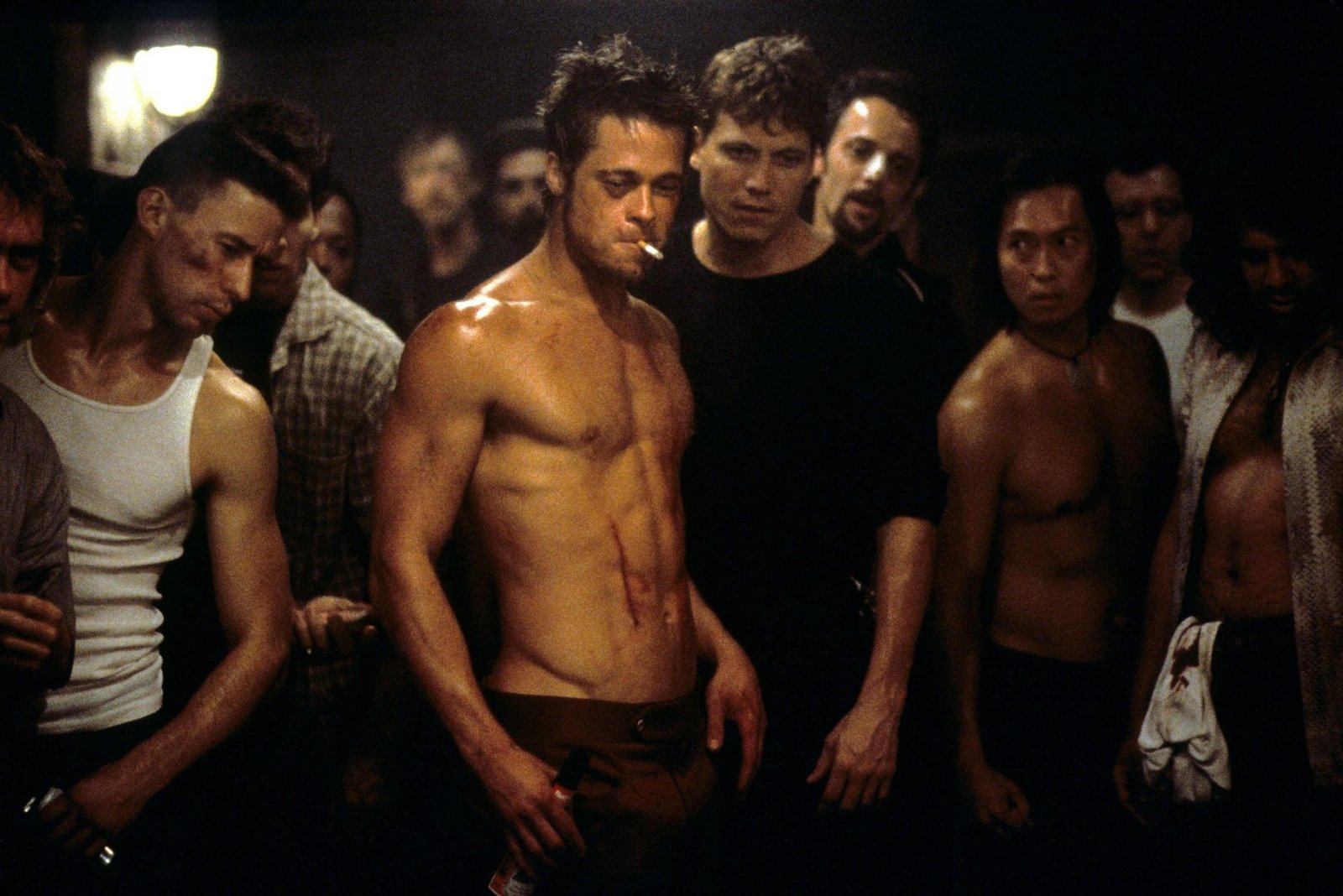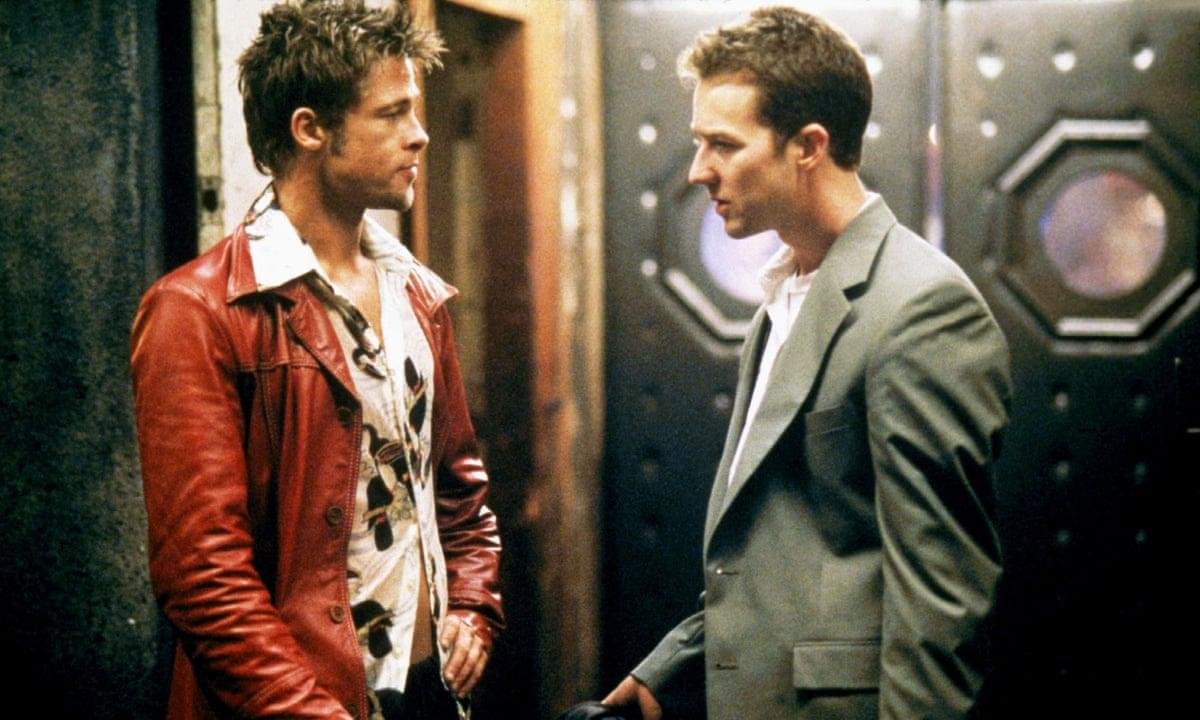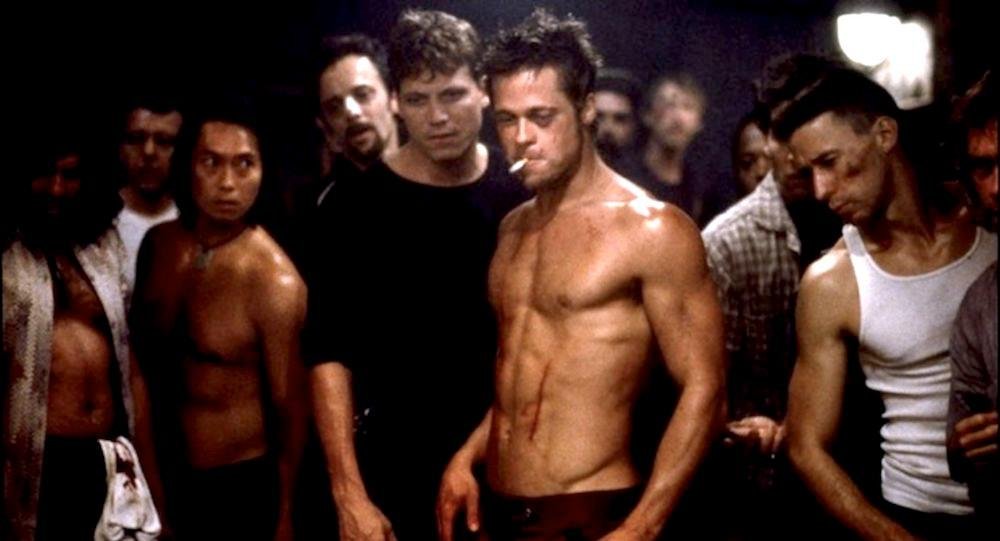Why ‘Fight Club’ is a Timeless Cinematic Masterpiece
In 1999, David Fincher‘s ‘Fight Club’ hit theaters and immediately polarized audiences with its dark, provocative themes and shocking twist ending. Over two decades later, the film has cemented its place as a timeless masterpiece in the world of cinema. From its expertly crafted storytelling to its memorable performances and iconic dialogue, ‘Fight Club’ continues to captivate audiences and spark discussions about the human condition. In this article, we’ll take a closer look at what makes ‘Fight Club’ such a powerful and enduring film, and explore the complex themes and messages that it explores.
In 1999, David Fincher‘s ‘Fight Club’ hit theaters and immediately polarized audiences with its dark, provocative themes and shocking twist ending. Over two decades later, the film has cemented its place as a timeless masterpiece in the world of cinema. From its expertly crafted storytelling to its memorable performances and iconic dialogue, ‘Fight Club’ continues to captivate audiences and spark discussions about the human condition. In this article, we’ll take a closer look at what makes ‘Fight Club’ such a powerful and enduring film, and explore the complex themes and messages that it explores.

Introduction
In this article, we will dive deep into the cinematic analysis of one of the most iconic and thought-provoking movies of all time: Fight Club. Directed by David Fincher and starring Brad Pitt and Edward Norton, Fight Club is not just a mere action movie but a cultural phenomenon that challenges the societal norms and exposes the human condition like never before. From its unique narrative structure to its mesmerizing cinematography, we will dissect every aspect of this masterpiece and explore how it continues to resonate with audiences even after two decades of its release. So, get ready to join the fight and let’s explore the mesmerizing world of Fight Club.
Plot Summary
“Fight Club” is an iconic movie that first hit theaters in 19 The movie tells the story of a man known only as “The Narrator” who is struggling with insomnia and a mundane life. He meets Tyler Durden, a charismatic and mysterious man who introduces him to a secret society known as “Fight Club.” As The Narrator becomes more involved in the group, things begin to spiral out of control and he starts questioning his own sanity. The movie is a dark and thought-provoking commentary on modern society and the search for identity. Through its intricate plot and unforgettable characters, “Fight Club” has become a staple in the world of cinema.
Main Characters
When analyzing the movie “Fight Club”, it’s impossible not to talk about its main characters. The film revolves around the unnamed Narrator, played by Edward Norton, and Tyler Durden, portrayed by Brad Pitt. The Narrator is an insomniac, white-collar worker who is struggling with his mundane life, while Tyler is a charismatic, anarchist soap salesman who represents everything the Narrator wants to be. As the movie progresses, their relationship becomes more complex, and the audience is taken on a journey that explores the themes of masculinity, consumerism, and the human psyche. Norton and Pitt deliver phenomenal performances that make this movie a timeless classic.

Cinematography
Cinematography is an integral part of any film, and it plays a crucial role in conveying the story’s theme and tone to the audience. In “Fight Club,” the cinematography is nothing short of breathtaking. From the opening shot of the film, where we see the narrator’s (played by Edward Norton) office fading away into oblivion, to the gritty and dark visual style used to depict the underground fight club scenes, every shot is meticulously crafted to amplify the story’s themes of disillusionment, chaos, and rebellion. The use of handheld camera work, low-angle shots, and unconventional framing techniques adds to the film’s overall immersive and surreal experience. All in all, the cinematography in “Fight Club” is undoubtedly one of the film’s most significant strengths and a testament to the artistry and vision of its director, David Fincher.
Soundtrack
The soundtrack of “Fight Club” is an integral part of the movie, contributing to the overall tone and atmosphere. Composed by the Dust Brothers, the electronic and industrial music perfectly captures the film’s dark and gritty themes. The opening credits sequence, set to the track “Where Is My Mind?” by the Pixies, sets the stage for the chaos and rebellion that follows. The music also enhances the fight scenes and adds a sense of intensity to the film’s climactic moments. Overall, the soundtrack of “Fight Club” is a key component in the cinematic experience and adds to the film’s cult status.
Themes and Symbolism
In the cinematic masterpiece “Fight Club,” themes and symbolism play a crucial role in unraveling the complexities of the movie. From the protagonist’s struggle with dissociative identity disorder to his journey towards self-discovery and realization, the movie is a deep exploration of the human psyche. The use of symbolism, such as the recurring motif of soap and the character of Tyler Durden, adds depth and layers to the movie’s themes. Overall, “Fight Club” is a compelling piece of cinema that rewards careful analysis and reflection, and its themes and symbolism ensure that it remains a relevant and thought-provoking movie even today.

Narration and Point of View
In the cinematic analysis of “Fight Club”, narration and point of view play a crucial role in shaping the story. The unreliable narrator, portrayed by Edward Norton, adds a layer of complexity to the film’s plot. The use of voice-over narration allows the audience to enter the mind of the protagonist and experience his inner turmoil. The shifting point of view throughout the film helps to create a sense of unease and confusion, which is essential to the film’s themes of identity and societal discontent. Overall, the expert use of narration and point of view in “Fight Club” adds to its status as a modern classic in the world of cinema.
Social Commentary
Social commentary is an integral part of cinema and movies that often goes unnoticed. However, some films, like Fight Club, have been successful in delivering a strong social message through its plot and characters. In Fight Club, the protagonist’s character represents the alienated and disillusioned middle-class of society who are looking for an escape from their mundane lives. The movie shows how consumerism, materialism, and conformity have turned humanity into zombies, living meaningless lives. It is a powerful social commentary on the vices of modern society and encourages viewers to question the status quo. The film’s success lies in its ability to engage the audience through its storyline, characters, and themes while also delivering a message that resonates with viewers.
Reception and Legacy
The reception of Fight Club upon its initial release was mixed, with some critics and audiences praising its bold and unconventional storytelling while others found it too violent and nihilistic. However, over time it has gained a cult following and is now widely regarded as a modern classic. Its exploration of masculinity, consumerism, and identity has influenced numerous films and pop culture references, and it continues to be dissected and analyzed by fans and academics alike. Its legacy in cinema is undeniable, cementing director David Fincher and stars Brad Pitt and Edward Norton as major players in the industry.
Conclusion
In conclusion, Fight Club is a masterpiece in cinematic history. The movie is a brilliant adaptation of Chuck Palahniuk‘s novel, capturing the essence of the story in a way that is both visually stunning and narratively engaging. The film uses strong cinematography, sound design, and editing to create a unique and unforgettable experience for viewers. The actors bring their A-game, delivering some of the best performances of their careers. Overall, Fight Club is a must-see for any cinephile or anyone interested in exploring the complexities of masculinity, consumerism, and the human psyche.
For more information about Fight Club cinematic analysis, including movie details, cast information, etc..
check out the filmaffinity page.



